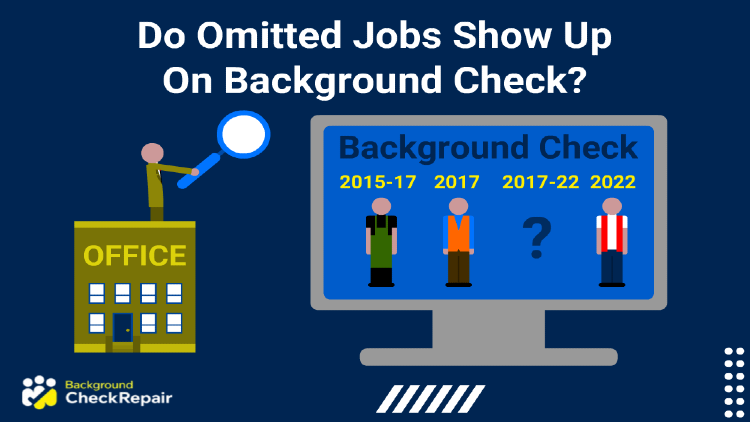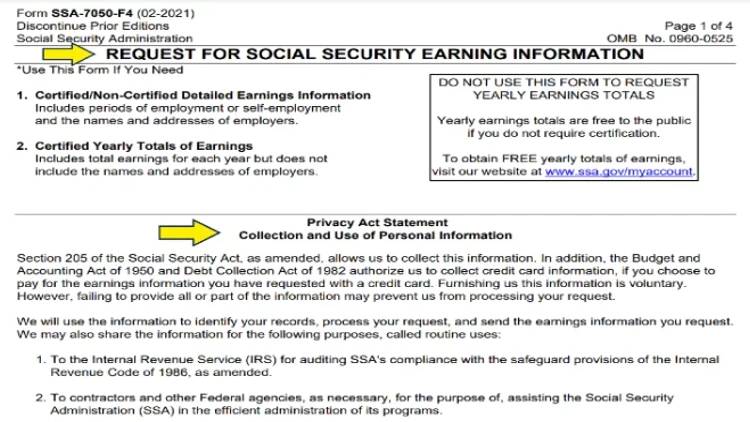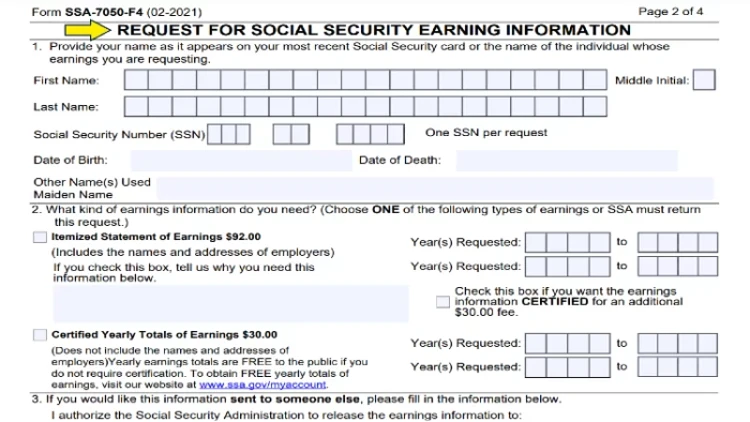Do All Jobs Show Up on Background Check?
This largely depends on the type of background check conducted. Not all jobs will show up on a routine background check. For example, jobs dating back more than 10 to 15 years will not appear.
 Written by Background Check Repair
Written by Background Check Repair
Background Checks | May 28, 2024

Table of Contents
Do omitted jobs show up on background check? This is a common question for applicants who may accidentally forget to add a previous job, or who would prefer that certain jobs not be public knowledge. This is especially true if the job was ended by a resignation or termination.
Fortunately, work history isn’t considered public record, but there are some rules to know about how employers can see past employment.
Knowing what appears on a background screening for employment is the first step, as well as the steps involved in discovering someone’s past jobs because both factors impact whether omitted jobs will show up and outline what employers seek in a background check.
In some cases, employee background checks may reveal omitted details that can automatically disqualify applicants.
The following guide explains six crucial rules that potential employees need to know about omitting jobs in their resumes or information they give potential employers.
Employers usually give a job offer contingent upon completing a background check. Employers generally investigate a person’s criminal record, education, employment history, and credit history, among others.1 When exploring employment history, the employer will contact the previous employer listed on an applicant’s resume or employment form.
Employers don’t usually go out of their way to verify an applicant’s entire employment history. Even so, an employment background check can disclose omitted past employers. Several ways reveal past employers during a background check.
First, the employer can use outside investigators to conduct the background check. These third parties have considerable resources that run thorough vetting. The parties will not only verify the credibility of the previous jobs listed on the resume or application form but also search for any unlisted past employer. Depending on the type of position, the investigation can delve deeper, asking questions about attitude and performance.
Second, even though there are state laws that prevent employers from retrieving anything but basic details from previous employment, some information provided may inadvertently reveal omitted jobs.
For example, information provided through the SSA. Data from previous employers, such as start and end dates, may show gaps in employment that were not disclosed on the resume or application form.

Third, some hiring managers may run through social media profiles and other online mentions during a background check. This investigation may result in new evidence of an applicant’s past employment in places not mentioned on resumes and other applications.
Fourth, past employers’ information may also appear on other background checks. For example, creditors will want salary and employment information when applying for credit. The result will be that a credit report can reveal former employers in a credit report.
It’s essential to know how to run a records check on yourself. Conducting a self-background assessment should be the first step when looking for a new job. An applicant should check their criminal, driving, and credit records to remove any incriminating discrepancies and disqualifying offenses.
Depending on the company and position, employers may run several kinds of background screenings. The most common employment screening run by employers nationwide is the level 2 check. The first step is to learn how to run a criminal background check on yourself because this is what a level 2 background check focuses on.
This is the easiest way to know, do omitted jobs show up on background check reports.
The US considers criminal records as public records.2 Many online professional services offer criminal background information on US citizens, and applicants can look for their criminal information here. Some websites provide free searches, while others conduct a criminal record check at a small fee.
Alternatively, applicants can get criminal records from law enforcement agencies such as public safety offices and local police departments with convictions and arrest records. These agencies also provide avenues where applicants can learn how to exclude criminal history from a records check through sealing, expunging, or correcting the record.
If an applicant passes a background check, they will receive a call from the employer stating that they are moving forward with the application. Conversely, an applicant with a failed employee background check will also get informed. There are several reasons for failing a background check.
They include:
Gaps in employment history, strings of short-lived jobs, and a pattern of unemployment may disqualify an applicant from passing a background check. So although the answer to do omitted jobs show up on background check reports is usually no, employers will still see gaps. This history suggests that the applicant is unreliable, has a poor work ethic, and is not worth investing in.
It is important to note that this disqualification will not extend to seasonal work, training, or internship, which may be considered an advantage for entry-level positions.
All employers consider dishonesty a disqualifying offense. Applicants who lie about their qualifications, skills, education, or employment history will get an automatic dismissal. These lies are easily detected during background checks despite any embellishment.3 Most employers will contact references to verify previous employment history, including the period of the previous position, duties, and work ethic.
Similarly, a background check will display when and where applicants obtained their education qualifications.
A criminal record can determine the future of an American’s career. This is the first thing that employers will check and the most disqualifying factor. An applicant with a criminal record can be hired depending on the severity of the crime and the employer’s hiring standards.4 However, the applicant must be upfront with this information during the hiring process.
Misdemeanors and incidents that occurred more than five years ago may not be considered disqualifying offenses. However, serious crimes will put the applicant out of running despite how long they occurred.
A good recommendation will push along the hiring process. Employers must verify potential employees’ work ethic, character, and overall suitability. In some situations, a former employer may give a bad review. Even though one such review may not hurt an applicant’s chances, several bad references will negatively impact the application process.5
Due to the risk of a former employee suing for defamation, most workplaces only provide the job title, work dates, and salary.
The background check will include looking into the applicant’s credit history if a person is applying for a federal or financial position. Poor credit history is a liability for anyone who wants to deal with money extensively.
Some jobs involve drug and alcohol tests. Such jobs require workers to operate machinery, drive, or perform highly technical duties. A candidate who fails such a test will be disqualified because they could become a liability.
If the job requires driving, then the background check will involve looking into a person’s driving record. If the applicant has a history of speeding citations, driving under the influence, or has been convicted for reckless driving, they are automatically disqualified.
Some rules and regulations protect an applicant’s rights concerning their social media. Social media screening is generally not part of a background check. However, many hiring managers look into a person’s social media or use professional screening services to gain insight into a person’s character beyond an ordinary interview.
Foul language, hate speech, and other harmful materials that may affect a company’s reputation may make a potential applicant a liability.
Most companies conduct a background screening after making a conditional job offer. It’s well to note that though background checks may reveal omitted employment history, (if you are wondering do omitted jobs show up on background check reports), they are not like an FBI investigation. Therefore, more often than not, omitted jobs will not appear on a standard background check.
(Verify that you can meet expectations by learning how to run an employment history check on yourself which outlines the steps required for obtaining a records check on yourself for employment.)
Here is what to expect:
Job abandonment refers to walking out of a job or failing to work for three consecutive days without giving notice. Most organizations in the US require an advance resignation notice. If job abandonment occurs, the previous employers are within their rights to provide this information when contacted or in a job reference as long as it’s done according to the applicable laws.6 The employers follow their own job reference policies by providing accurate information.
Applicants do not necessarily have to list a job they abandoned in their resume. However, they should list it in a job application form since it’s a legal document. Even so, the application will only request a list of the previous position and won’t ask for an actual reason for leaving. An applicant is cautioned not to volunteer this information. If these jobs are omitted in the application form, then the background check may reveal them. Dishonesty may be grounds for rejecting the application.
Job abandonment will go on an applicant’s record and be bad for prospects. Most third parties that conduct background checks will look into job abandonment and provide this information to the current employer.
A routine background check is unlikely to expose termination. However, a few instances might bring this issue to light. First, some employers like to include this question in the application form. They may ask the applicant if they have ever been fired from a previous position. Here, applicants are obligated to answer truthfully.
If it comes up that an applicant was indeed fired from a previous position, the applicant will be asked to state the reason. If this happens, whether a background check reveals termination is a moot point as the applicant has already provided the information.
Employers are not legally restricted from revealing that a previous employee was let go, laid off, or terminated. In some cases, they may share the reasons for termination; however, if an employer states falsely that a previous employee was fired or gives an incorrect explanation for the termination. If this damages their reputation, the employee should sue for defamation.
The applicant may forget to list a job on their resume or application form. If a background check discovers these omissions, depending on the nature of the job, this information could be held against them. This is especially true if there was a quick termination of the applicant with previous performance issues.
Most jobs do not need to be listed on a resume. The applicant can easily remove anything irrelevant to the current target. Short-term positions, seasonal jobs, and positions held more than 15 years ago can be easily removed. Most employers want a job history over the last ten or fifteen years.
Employers automatically screen applicants’ resumes with Applicant Tracking Systems to verify most information.
The best way to avoid omissions and other potential problems is to conduct a self-background check. This check will help the applicant recreate their employment history on their resumes. This way, the applicant will avoid unintentional deception and inadvertent job omissions. An applicant can review their work history through the following means.
An applicant can request the Social Security Administration to get a complete work history. They will have to fill out a Request for Social Security Earnings Information.9 This information is given at a small fee. The applicant can retrieve information about previous employers’ addresses, names, employment dates, or salaries.7
Employers use Social Security numbers to ensure the applicant is eligible to work in the US. This number also ties up all of an applicant’s employment history. Social Security records will also take a percentage of income for the social security benefits program.

Once the applicant fills out Form 7050, available online and at the local social security office, they will submit the form with a fee ($192 for a certified statement and $136 for a non-certified statement). The process can take up to four months before the applicant can retrieve their report, including their employment history.
Tax returns will give the applicant a few details about employers, mostly about wages. This way, the applicant can update their employment history. Tax returns won’t provide information about the start or end dates of the jobs.
All employers have to provide a Form W-2 for their workers at the end of each year. This form will include the annual income and how much was withheld from taxes. The form will also have employment dates as well as the employer’s name and address.8
Those with copies of their annual tax returns can easily find their employment history. Those who do not have these records can visit the IRS10 website and fill out form 4506.11 This form allows applicants to request copies of previous tax returns.
State Unemployment Offices also provide social security information. This option is almost always free. An applicant can check in their local office to find out which information they have access to.
This option is viable for those who have worked in a single state. The unemployment office will provide records that go back a decade. All the applicant has to do is to provide a records self-request.
Credit report agencies will not necessarily hold records of people’s employment histories. However, this is a viable option to obtain information about some previous work history. If the applicant provided employer information when applying for a credit card, loan, or credit-related inquiry, this information would be readily available in a credit report.
All in all, it’s not advisable to omit a job on an application as it might be incriminating later on. If an application asks to list all previous employment, then the applicant should do so with utmost honesty. Do omitted jobs show up on background check…the answer is simply, yes, they can.
This largely depends on the type of background check conducted. Not all jobs will show up on a routine background check. For example, jobs dating back more than 10 to 15 years will not appear.
Yes, a background check, especially those conducted by a professional service, will reveal previous jobs.
Employers can request an employee’s employment history through the Social Security Administration using the online tool.
Yes. Job abandonment will indeed go on your record. Previous employers can reveal job abandonment during a reference check per company policy.
Yes, Background checks can reveal past employers through employment history reports, credit reports, social media, and other online mentions.
An applicant should not omit a job from a background check because once it’s revealed, it will come out as dishonesty, costing you the job.
No. It’s not okay to omit jobs from an application especially if it specifically requests to list all jobs. This is a legal document, and many employers consider dishonesty a disqualifying offense.
Yes. A routine background check or an SSA report may reveal jobs, not on a resume.
A background check about employment history will reveal:
If an applicant fails a background check after a job offer, the employer will rescind the offer and provide a reason.
Most background screenings are likely to show an applicant’s history of employment.
It’s unnecessary to list all jobs on a background check unless the employer specifically asks for them on an application.
Yes. Employment histories do show up on background checks.
This may be considered dishonesty and disqualify you from the position depending on the nature of the job and the standards of the potential employer.
No, you should not include a short-term job unless the application indicates that you list all your work experiences.
Depending on the type of background check, yes, these short stints can be on the record.
If you forget to add a job, simply contact the hiring manager to add it.
1ZipJob Team, (March 25, 2021). Can A Background Check Reveal Past Employers? ZipJob. Retrieved 7 July, 2022 From <https://www.zipjob.com/blog/can-employers-check-employment-history/>
2What Can disqualify You From A Background Check? Nd. BetterTeam. Retrieved 7 July 2022 From <https://www.betterteam.com/disqualify-background-check>
3Duane, M., La Vigne, N., Lynch, M., & Reimal, E. (2017). Criminal background checks. Urban Institute. Justice Policy Center. Report available online at <http://www.urban.org/research/publication/criminal‐background‐checks‐impact‐employment‐and‐recidivism>
4Blumstein, A., & Nakamura, K. (2009). Redemption in the presence of widespread criminal background checks. Criminology, 47(2), 327-359. Retrieved from: <https://jrsa.org/webinars/presentations/cch-part2-criminology-2009.pdf>
5Klazema, M. ( June 15, 2021). Can A Background Check Reveal Past Employers? Background check.com. Retrieved 7 July 2022 From <https://www.backgroundchecks.com/blog/can-a-background-check-reveal-past-employers>
6Omitted Short-Term Job From Application And Worried About background Check. Nd. Retrieved 7 July 2022 From <https://antennamediatorino.eu/en/omitted-short-term-job-from-job-application-and-worried-about-background-check/>
7Do Omitted Jobs Show Up On A Background Check? (May 31, 2019) Private Eyes. Retrieved on 7 July 2022 From <https://www.privateeyesbackgroundchecks.com/do-omitted-jobs-show-up-on-a-background-check/>
8Indeed Team, (May 31, 2022). How To Research Your Complete Work History. Indeed. Retrieved on 7 July 2022 From <https://www.indeed.com/career-advice/resumes-cover-letters/find-work-history>
9Request for Social Security Earnings Information. (2022). Request for Social Security Earnings Information. Retrieved July 06, 2022, from <https://www.ssa.gov/forms/ssa-7050.pdf>
10IRS. (2022). About Form 4506, Request for Copy of Tax Return. Forms and Instructions. Retrieved July 06, 2022, from <https://www.irs.gov/forms-pubs/about-form-4506>
11Request for Copy of Tax Return. (2021). Form 4506 (Rev. 11-2021). Retrieved July 06, 2022, from <https://www.irs.gov/pub/irs-pdf/f4506.pdf>
We use cookies to ensure that we give you the best experience on our website. If you continue to use this site we will assume that you are happy with it